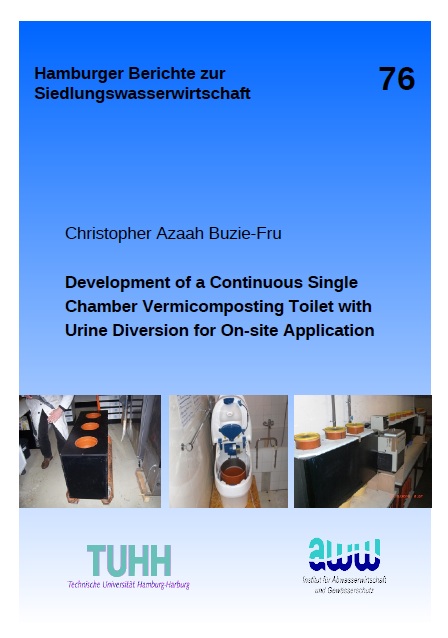Development of a continuous single chamber vermicomposting toilet with urine diversion for on-site application
Buzie-Fru, C. (2010)

Published in: 2010
Publisher:
PhD thesis, Hamburg University of Technology (TUHH), Hamburg, Germany
Author:
Buzie-Fru, C.
Uploaded by:
SuSanA secretariat
Partner profile:
Hamburg University of Technology, Institute of Wastewater Management and Water Protection
6379 Views
188 Downloads
Content - Summary
Human excreta continue to be a serious health burden in the developing world. Lack of context-relevant technical options is the main restricting factor in implementing viable sanitation schemes in most countries.
In this thesis, a laboratory scale flow-through model reactor for the treatment of faecal matter by vermicomposting is presented. The system was setup to investigate conditions likely to be experienced in urine diverting dry (UDD) sanitation systems based on vertical loading, continuous-flow vermicomposting. In the test system, that was designed to utilize the feeding habits and reproductive cycles of the earthworm Eisenia foetida, faecal matter tainted with differently coloured non-biodegradable glass markers and fed continuously in thin layers to the upper part of the reactor flows down and subsequently comes in contact with upwardmigrating earthworms.
Additional information
Hamburger Berichte zur Siedlungswasserwirtschaft Nr. 76
Bibliographic information
Buzie-Fru, C. (2010). Development of a continuous single chamber vermicomposting toilet with urine diversion for on-site application. PhD thesis, Hamburg University of Technology (TUHH), Hamburg, Germany
Filter tags
Case studies in other formats Composting, vermicomposting (solid waste), composting toilets English















